Africa
Chad announces suspension of visas to US citizens in response to Trump travel ban
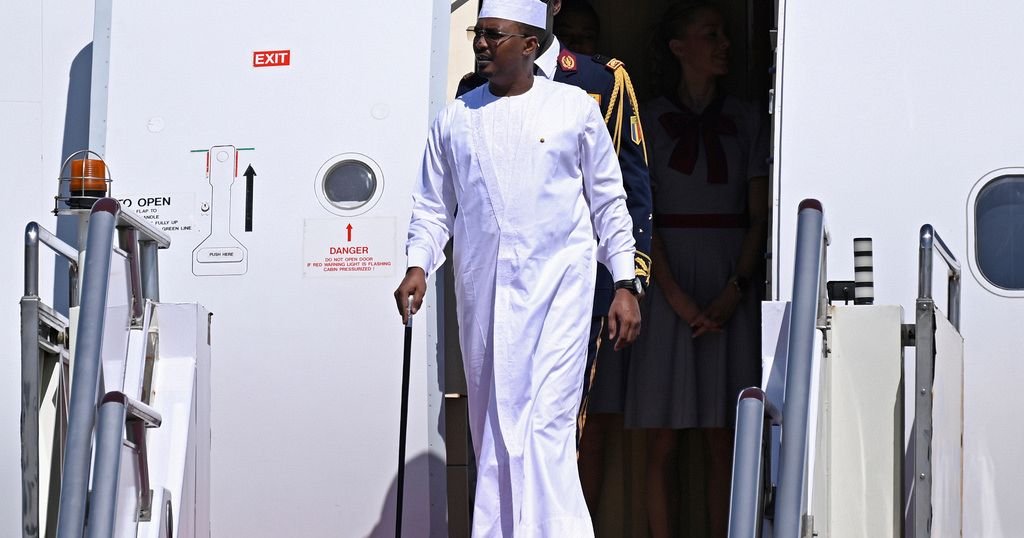
Chad’s President Mahamat Idriss Deby on Thursday announced that his country will suspend the issuance of visas to U.S. citizens in response to the Trump administration’s decision to ban Chadians from visiting the U.S.
President Donald Trump on Wednesday resurrected a hallmark policy of his first term when he announced the visa ban on 12 countries including Chad, accusing them of having “deficient” screening and vetting, and historically refusing to take back their own citizens who overstay in the United States.
The new ban targets Afghanistan, Myanmar, Chad, the Republic of Congo, Equatorial Guinea, Eritrea, Haiti, Iran, Libya, Somalia, Sudan and Yemen.
There will also be heightened restrictions on visitors from seven others in the new travel policy which takes effect Monday at 12:01 a.m.
In a Facebook post, Chad’s president said he is directing his government to suspend visas to U.S. citizens “in accordance with the principles of reciprocity.”
“Chad has no planes to offer, no billions of dollars to give but Chad has his dignity and pride,” Deby said, referring to the $400 million luxury plane offered to his administration as a gift by the ruling family of Qatar.
Republic of Congo calls ban a mistake
The new travel policy has triggered varied reactions from Africa, whose countries make up seven of the 12 countries affected by Trump’s outright visa ban with some exemptions.
In the Republic of Congo, government spokesperson Thierry Moungalla said he believes the country was among those affected because of a “misunderstanding” over an armed attack in the U.S. with the perpetrators “mistaken” to be from the Republic of Congo.
“Obviously, Congo is not a terrorist country, is not home to any terrorist, is not known to have a terrorist vocation. So we think that this is a misunderstanding and I believe that in the coming hours, the competent diplomatic services of the government will contact the American authorities here,” he said in the capital of Brazzaville.
In Sierra Leone, among countries with heightened travel restrictions, Information Minister Chernor Bah said the country is committed to addressing the concerns that prompted the ban.
“We will work with U.S. authorities to ensure progress,” he added.
Africa
Gabon launches electoral process for September 27 local and legislative elections
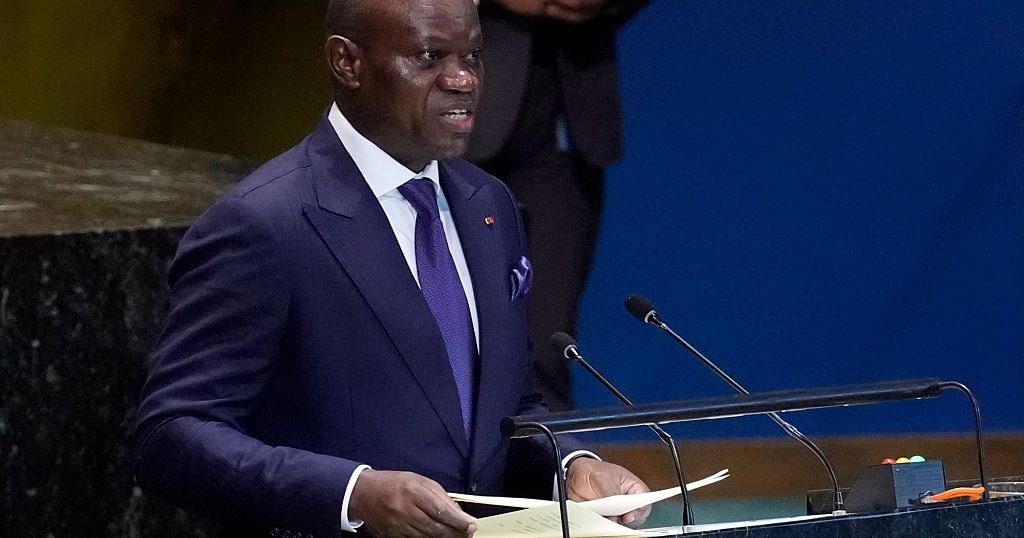
The electoral process for Gabon’s local and legislative elections is officially underway.
The timetable for the September 27 vote has been announced and members of the national election commission have been sworn in by the Constitutional Court.
The revision of electoral rolls across the country begins on July 14 and continues until August 12. This will ensure new voters are added and deceased or ineligible voters removed from the rolls. It will also register any changes of voting centre and update personal data.
People aged 18 and over with a Personal Identification Number (PIN) are automatically registered and need only choose their polling center.
Local electoral commissions will be set up by July 26 and deployed across the country and abroad.
Nominations for the legislative and local elections are open from July 27 to August 7.
Fifth Republic
The Ministry of the Interior and national election commission reaffirmed their commitment to ensuring “credible, transparent and peaceful” elections, and called on citizens to play an active part in building the Fifth Republic.
Last week, two years after seizing power in a coup, President Brice Oligui Nguema unveiled a new political party, the Democratic Union of Builders, or UDB. Oligui secured nearly 95 percent of the vote in April’s presidential election.
The launch of the UDB appears to signal Oligui’s intent to transition from military leader to long-term political figure. While he initially presented himself as a reformer leading a transitional government, the creation of a political party gives structure to his leadership and a platform for future governance.
Africa
Forty years and counting: CAR once again postpones local elections
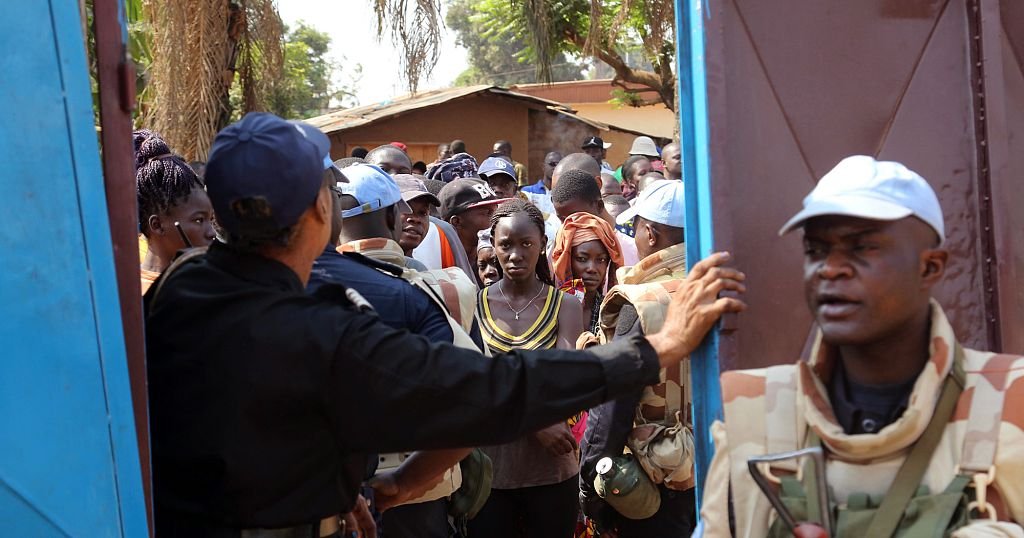
Scheduled to take place for the first time in almost forty years, local and municipal elections in the Central African Republic have been once again postponed.
Initially planned for the end of August, officials say the vote will now be held in December, in conjunction with the legislative and presidential elections.
President Touadéra, who has been in office since 2016, launched a biometric voter registration exercise last year to update the electoral roll.
Authorities say the postponement is due to a delay in mobilizing funds as well as technical and organizational hiccups.
Members of the opposition BRDC are calling for an overhaul of the electoral authority and a dialogue with President Touadéra.
CAR has been battling conflict since 2013 when predominantly Muslim rebels seized power and forced the then-president from office. The United Nations has said the elections represent a ”crucial opportunity” to strengthen democratic governance, promote reconciliation and consolidate stability.
The landlocked country is one of the poorest in the world, despite having significant natural resources, including uranium, oil, gold and diamonds.
Africa
France and New Caledonia reach a deal granting territory more autonomy but no independence
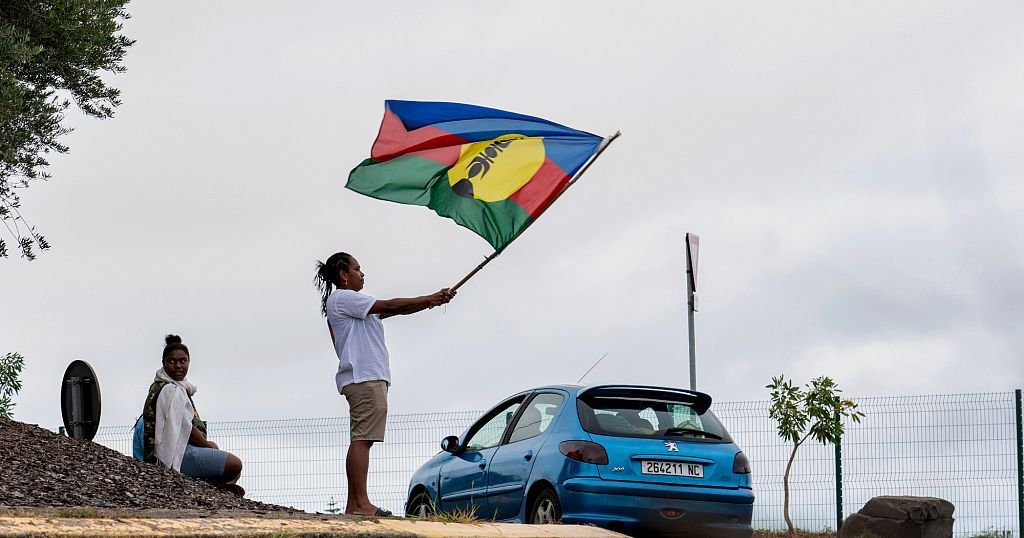
After 10 days of negotiations, including a final overnight marathon, France has reached an agreement with New Caledonia. The deal grants the South Pacific territory more autonomy — but stops short of the independence sought by many indigenous Kanaks.
President Macron hailed the deal as historic but it still needs final approval in New Caledonia. If passed, it would create a state of Caledonia within the French Republic incscribed in the French constitution and a Caledonian nationality alongside French nationality.
The talks stemmed from deadly rioting last year prompted by proposed changes to electoral rules that pro-independence groups said would marginalize Indigenous voters.
The territory has held three referenda on the question of independence, with voters each time opting to remain with France.
A special congress will be held to finalize next steps. Media reports say they could include more sovereignty for New Caledonia over international affairs, security and justice.
The accord could also eventually allow New Caledonians to change the territory’s name, flag and hymn.
Negotiators stressed the importance of rehabilitating and diversifying New Caledonia’s indebted economy, which depends heavily on nickel mining, and making it less reliant on the French mainland.
France colonized the Pacific archipelago in the 1850s, and it became an overseas territory after World War II, with French citizenship granted to all Kanaks in 1957.
-
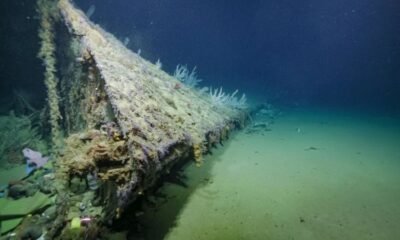
 Asia5 days ago
Asia5 days agoA torpedoed US Navy ship escaped the Pacific in reverse, using coconut logs. Its sunken bow has just been found
-
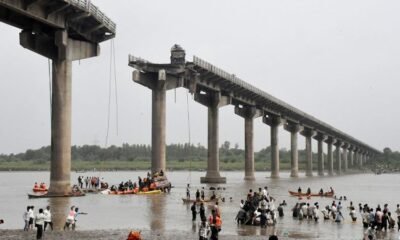
 Asia4 days ago
Asia4 days agoGujarat state: Bridge collapse kills 9 in India
-

 Europe4 days ago
Europe4 days agoExtreme heat is a killer. A recent heat wave shows how much more deadly its becoming as humans warm the world
-

 Lifestyle5 days ago
Lifestyle5 days agoFaith-based camps like those hit by Texas floods are rite of passage for many
-

 Europe4 days ago
Europe4 days agoTrump promised 200 deals by now. He’s gotten 3, and 1 more is getting very close
-
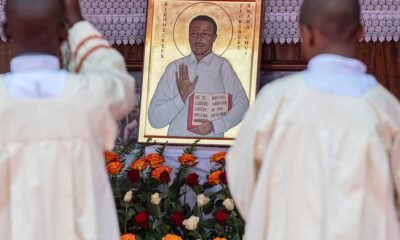
 Africa5 days ago
Africa5 days agoCatholics in eastern Congo honor beatified anti-corruption martyr
-

 Lifestyle3 days ago
Lifestyle3 days agoHealthy workday snacks include a smart mix of energy-boosters
-
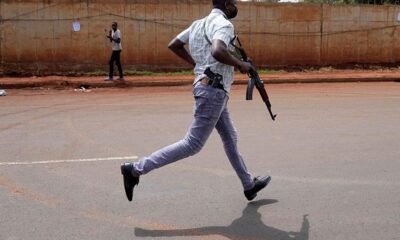
 Africa4 days ago
Africa4 days ago“Shoot in the leg”: Ruto orders Kenyan police to curb protest vandalism




